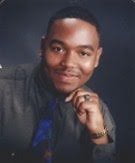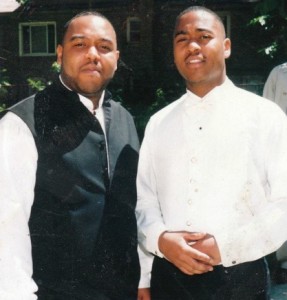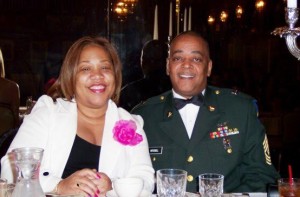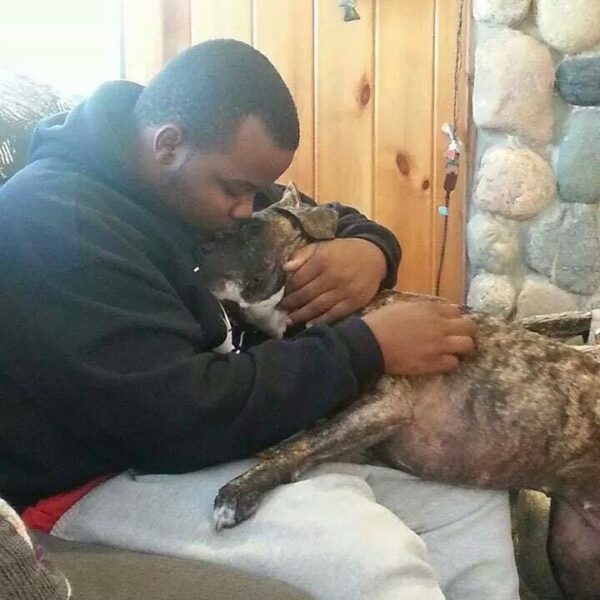My son, Kenneth, was the center of our family. He was the first grandchild of the family and became a role model for his younger siblings and cousins. At 31, he was the single parent of two little boys, and had another son on the way. He was responsible and considerate of the people around him. He had a very strong sense of family and was the one who would organize a barbecue if too much time had passed between family gatherings.
It was Super Bowl weekend and Kenneth was the manager at a golf center in University Park, a suburb of Chicago. He was busy that weekend getting ready for a Super Bowl party he was hosting on Sunday. His boys were with their mother, so Kenneth took the rare opportunity that evening to spend some time with friends at a local sports bar—playing darts and enjoying each other’s company.
As Kenneth was leaving, an argument broke out between two individuals outside of the bar. Kenneth intervened, attempting to diffuse the situation and make peace, when a friend of one of the individuals went to his van and grabbed a gun and started randomly firing into the crowd. Kenneth was struck.

I was in bed when I got a call from the mother of one of my other grandsons saying that Kenneth had been hurt in a shooting and he was lying at the scene with a sheet over him. The blood drained out of my face and everything within me poured out at the shock of this news and at the realization that my son was most likely dead.
I told my husband Kenneth had been hurt, but I couldn’t bring myself to tell him that I thought our son was dead. I quickly got dressed and bolted out the door to try to find him. In a state of denial, I went by the hospital to see if Kenneth was there—of course, he was not. This was confirmation that I would never see my son alive again.
Never in a million years would I imagine Kenneth would be the one to die from an act of gun violence, right here at home in a free country.
I drove to the scene of the shooting and there he was, lying on the cold, hard ground. Every fiber of my being wanted to run to him, pull back that sheet and help him—to hold him and tell him how much I loved him. I wanted my son, my gift from God. My husband arrived just in time to stop me. He said, “Brenda, you can’t go over there. They have a crime scene.” It was horrifying to see my baby, my good son lying there lifeless, and not be able to touch him. I felt for the first time in our lives that my family was dysfunctional. The pain was so intense that I would not wish this experience on my worst enemy.
Earlier that day, I distinctly remember feeling so satisfied with my life, and I thanked God for meeting my needs and the needs of my family. Little did I realize that, in less than 24 hours, I would need strength.
Just a week before Kenneth’s death, our younger son, Kevin, left for his third tour of duty in Afghanistan. This is the kind of thing that makes a mother worry. I prayed for him and placed him on the altar. In my mind, he was the one who was in danger. Never in a million years would I imagine Kenneth would be the one to die from an act of gun violence, right here at home in a free country.

It was soul-crushing to tell my grandchildren—who were just 6 and 8 years old at the time—that their father was not coming home. My oldest grandson asked, “Grandma, what’s going to happen to us? Where will we live?”
My younger son, Kevin, safely completed his tour of duty but gave up his military career to come home and care for Kenneth’s children—one of whom, Mykhi, never got to meet his daddy. He struggles with the fact that everyone knew his dad but him.
I don’t think you can ever come to terms with the death of a child. It’s been 12 years since Kenneth’s death but life has never been the same, and it never will be. To this day, I still struggle with symptoms of post-traumatic stress disorder and have had to take an extended leave of absence from my job to try and get better.
As a minister, I have officiated the funerals of too many black men in our community, and the crime is on humanity.
I worry about my grandsons now. The threat of gun violence surrounds us. As a minister, I have officiated the funerals of too many black men in our community, and the crime is on humanity. How many young men and women have we lost who will never have the chance to reach their full potential? The impact on our community is devastating. We have children in Chicago who aren’t worried about growing up to be a doctor or a lawyer—they are just worried about growing up, period.

It’s so important for families like mine, who have been so deeply impacted by gun violence, to keep telling our stories. If we keep shining a light on the real impact that gun violence has on families and communities, then our children’s deaths will not be in vain. They are still speaking, don’t put a period behind them.




